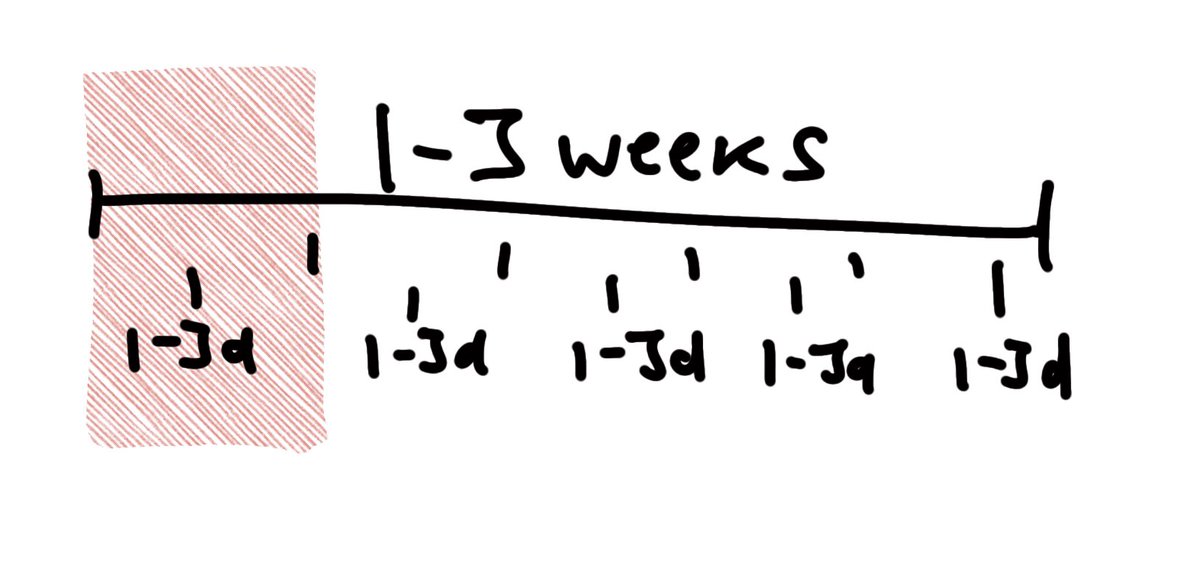
Here’s a basic (but overlooked) aspect of how product teams work ... and that is how they scope missions.
Say you scope your work in missions of 1-3 months ... (1/n)
Say you scope your work in missions of 1-3 months ... (1/n)

That gives you enough time, as a team, to truly “start together” ... do research together, everyone get involved, etc ... and still have plenty of time to “do work”.
But ... (2/n)
But ... (2/n)

Say teams typically scope/shape work in the 1-3w range.
Well of course that is going to require upfront research, handoffs, and “landing” the work on a team. 1-3d is simply too short for a meaningful “start together” type approach.
So...(3/n)
Well of course that is going to require upfront research, handoffs, and “landing” the work on a team. 1-3d is simply too short for a meaningful “start together” type approach.
So...(3/n)

If you want outcome-focused work that inspires teams, and leaves room for actually discovering things together — instead of leaving the team out of the activities — you’ll need to think in the 1-3 month or 1-3 quarter range.
(4/end)
(4/end)
• • •
Missing some Tweet in this thread? You can try to
force a refresh



